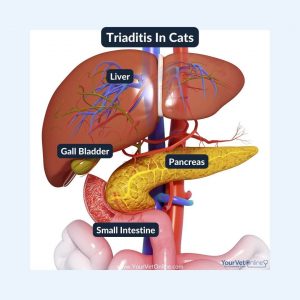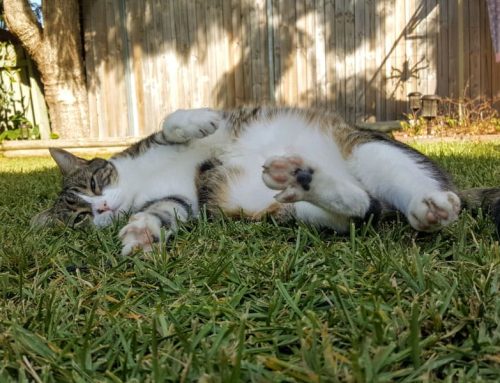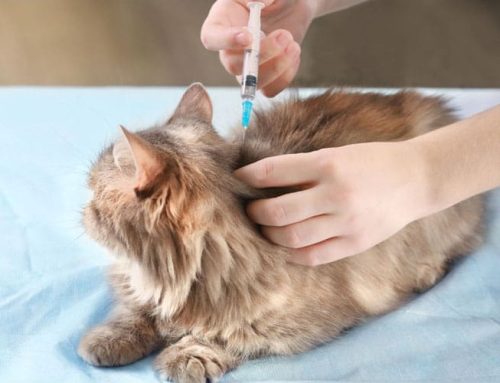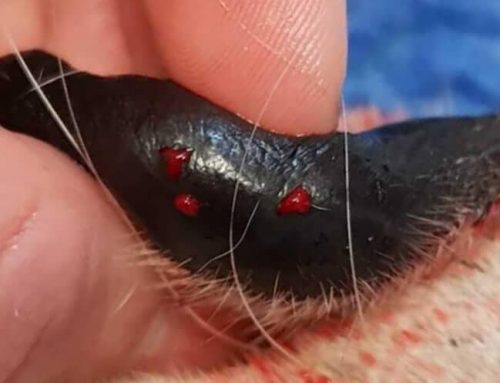What To Feed A Cat With Triaditis
[easy-social-share]
My 13yo cat has been diagnosed with Triaditis/Pancreatitis – I was wondering what food alternatives there are for her. Hills is very expensive – could I feed her Advance? She is also on Cerenia injections daily which help her tremendously. I can’t afford the $70 odd dollars every week for Hills. Thanks and regards
Sally, Hopper’s Crossing, Vic

Hi Sally,
Gosh, it’s very sad to hear that your cat has been diagnosed with triaditis. It is always best to do as your vet recommends, and it appears that your cat may only recently have been diagnosed.
What Is Feline Triaditis
Feline triaditis is a complex condition characterised by the concurrent inflammation of three vital organs: the liver/gall bladder (cholangitis), pancreas (pancreatitis), and small intestine (inflammatory bowel disease or IBD) .
This interconnected inflammation arises due to the unique feline anatomy, where the bile and pancreatic ducts share a common entry into the small intestine, facilitating the spread of inflammation among these organs.
The Role Of Nutrition In Managing Triaditis
While there’s no one-size-fits-all diet for cats with triaditis, appropriate nutritional support is crucial for managing the condition and supporting recovery.
Dietary adjustments should be tailored to address the specific needs of the affected organs and the overall health status of the cat.
Depending on your cat’s health status, it can be unwise to change their diet until they’re stable and feeling well again.
Once that occurs, the evidence suggests that there is not necessarily one particular diet that is better for these cats.
That said, there are some dietary recommendations.
Key Dietary Recommendations
-
- Easily Digestible Proteins: Opt for high-quality, easily digestible protein sources to minimise gastrointestinal workload. Novel protein diets may be beneficial, especially if food sensitivities are suspected.
- Moderate Fat Content: While the link between dietary fat and pancreatitis in cats isn’t definitive, feeding a diet with moderate fat content is generally recommended to reduce pancreatic stimulation.
- Low Carbohydrates: Cats are obligate carnivores with limited carbohydrate tolerance. Diets low in carbohydrates can help reduce intestinal inflammation and support digestive health.
- Fiber: Include soluble fiber to aid digestion.
- Enhanced B12 (Cobalamin) Levels: Cats with IBD often exhibit cobalamin deficiency. Supplementation can aid in improving appetite, energy levels, and nutrient absorption.
- Inclusion of Omega-3 Fatty Acids: Omega-3s possess anti-inflammatory properties that can benefit all three affected organs. Incorporating sources like fish oil can be advantageous.
- Probiotics: Supplementing with probiotics can help restore and maintain a healthy gut microbiome, supporting overall digestive health.
Recommended Feeding Practices
Wet Food Preference:
Canned or wet foods are generally preferred due to their higher moisture content and palatability, which can be beneficial for cats with reduced appetite.
Small, Frequent Meals: Offering smaller portions multiple times a day can ease the digestive process and prevent overloading the gastrointestinal system.
Avoid Sudden Dietary Changes: Gradually transition to new diets to prevent gastrointestinal upset.
Sometimes, cats with this condition may benefit from the inclusion of pancreatic enzyme or a liver support treatment such as milk thistle or S-Adenosylmethionine (SAMe).
When to Consult a Veterinarian
It’s imperative to work closely with a veterinarian to develop a tailored dietary plan for a cat with triaditis.
Regular monitoring and adjustments may be necessary based on the cat’s response to dietary changes and overall health status.
If you are still looking for advice, we do offer a second opinion service if you wish for more in-depth advice.
Frequently Asked Questions
Can I prepare homemade meals for my cat with triaditis?
While homemade diets can be customised, they require careful formulation to ensure nutritional adequacy.
Consulting with a veterinary nutritionist is essential before transitioning to a homemade diet.
Are there specific commercial diets recommended for triaditis?
Prescription diets formulated for gastrointestinal health, such as those with novel proteins or hydrolyzed ingredients, may be recommended.
Your veterinarian can provide guidance based on your cat’s specific needs.
Q3: How important is hydration in managing triaditis?
Maintaining adequate hydration is crucial.
Wet foods can aid in fluid intake, and ensuring constant access to fresh water is essential.
In some cases, subcutaneous fluids may be administered under veterinary supervision.
Can supplements aid in managing triaditis?
Supplements like omega-3 fatty acids, probiotics, SAMe and cobalamin can support organ health and reduce inflammation.
Always consult your veterinarian before introducing any supplements.
Is a low-fat diet necessary for all cats with triaditis?
While not all cats require a low-fat diet, moderating fat intake can be beneficial, especially if pancreatitis is a significant component of the triaditis.
Managing triaditis in cats involves a multifaceted approach, with nutrition playing a pivotal role.
By providing a balanced, easily digestible diet tailored to your cat’s specific needs, you can support their recovery and enhance their quality of life.
Always collaborate with your veterinarian to develop and adjust dietary plans as needed.





Leave A Comment